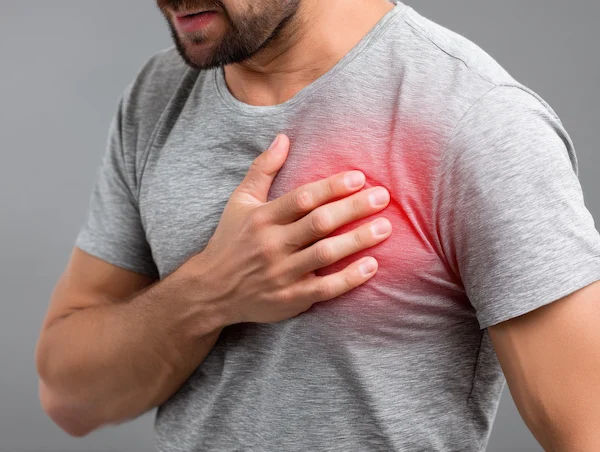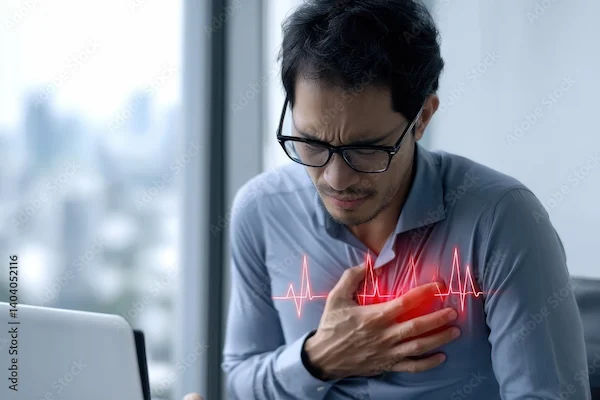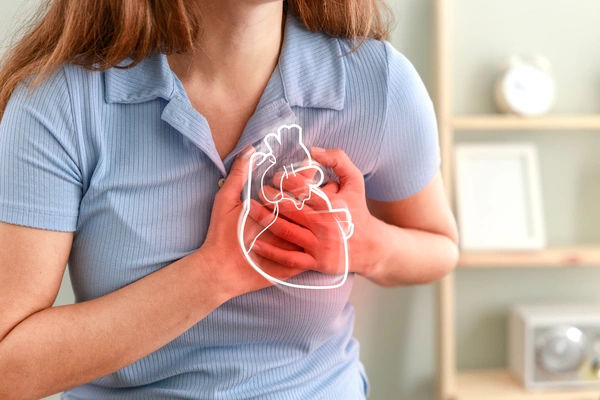- male
- 60 Years
- 01/04/2021
Why do most heart attacks occur in the morning?
Answered by 1 Apollo Doctors
Our body has Carcadian system and this rythm dips and raises throutout the day. This system sends out PA1-1 cells which blocks the blood clots from breaking down. Another reason is when we wake up, brain floods the heart with hormones which increases the load on the heart .
Dr. Dr Khaleel Suggests...
Consult a Cardiologist
Answered 04/07/2025
0
0

More Cardiology Health Queries
View allSo lately I've been experiencing this weird needle-like pain around my chest. It only sticks around for a few seconds and then just vanishes. But what really worries me is this constant pain I'm feeling in my back between the shoulder blades. It's just not going away. What could this be? Would love to hear your thoughts on this!
"Based on your description of needle-like pain around the chest area that comes and goes, along with constant pain at the back between the shoulder blades, it sounds like you may be experiencing symptoms of musculoskeletal pain or nerve irritation. To help alleviate the chest pain, you can take Acetaminophen (Tylenol) 500mg as needed for pain relief. For the constant back pain, you can try Ibuprofen (Advil) 400mg every 6-8 hours as needed for inflammation and pain. Additionally, applying a heating pad to the back area may also provide some relief. Make sure to rest and avoid activities that worsen the pain. If the symptoms persist or worsen, it is advisable to seek further evaluation from a healthcare professional."
Answered by 1 Apollo Doctors
I'm feeling like there's a kind of shaking sensation in my chest whenever I take a breath. It makes me wonder if this is a sign of weakness or if it could be something else. What might be causing this sensation?
do chest xray
Answered by 1 Apollo Doctors
I've been dealing with left atrium hypertrophy and costochondritis lately, and it's been quite a concern. What I'm confused about is whether it's safe for me to get back into playing football or engage in any strenuous physical activities. Could you provide some guidance on if I can safely start playing again?
It is important to consult with your healthcare provider for personalized advice, but in general, individuals with left atrium hypertrophy and costochondritis can usually continue playing football or engaging in strenuous physical activity. However, it is essential to monitor your symptoms closely and avoid activities that worsen your condition. For left atrium hypertrophy, medications like Losartan or Amlodipine may be prescribed to manage blood pressure and reduce strain on the heart. For costochondritis, over-the-counter pain relievers like Ibuprofen or Naproxen can help alleviate discomfort. Remember to follow your healthcare provider's recommendations and listen to your body during physical activity.
Answered by 1 Apollo Doctors
Disclaimer: Answers on Apollo 247 are not intended to replace your doctor advice. Always seek help of a professional doctor in case of an medical emergency or ailment.




.webp)
